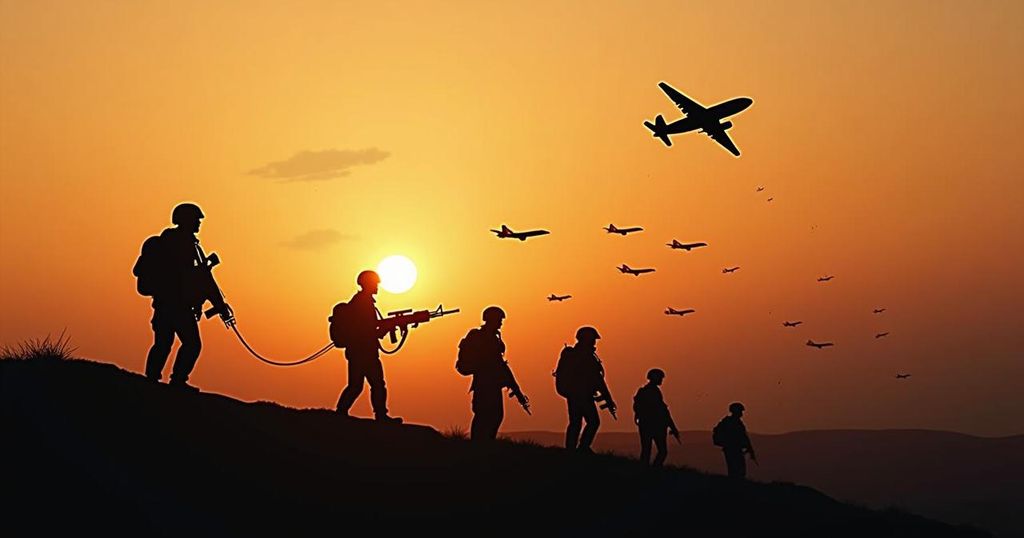Escalation of Conflict: Israel Strikes Hezbollah Following Nasrallah’s Death

In response to the killing of Hezbollah leader Hassan Nasrallah, the Israeli military has struck multiple targets in Lebanon, hitting launch sites aimed at Israel. Iran has vowed retaliation, marking Nasrallah’s death with five days of mourning. U.S. President Joe Biden labeled the killing as a form of justice and called for a ceasefire. The ongoing conflict has resulted in significant casualties, including civilian deaths in Lebanon.
The Israeli military reported early on Sunday that it had conducted extensive strikes against Hezbollah targets in Lebanon, aimed specifically at launch sites targeting Israel. This military action follows the confirmation of the death of Hezbollah’s longstanding leader, Hassan Nasrallah, whose demise represents a significant escalation in the ongoing regional conflict. In response, Iran has vowed that Nasrallah’s death “will not go unpunished,” initiating five days of national mourning. The conflict has drawn international attention, with U.S. President Joe Biden describing the killing as a “measure of justice” for the numerous victims affected by Nasrallah’s prolonged leadership in the militant group. Biden further reiterated the necessity for a ceasefire between Israel and Hezbollah. Critical developments that occurred yesterday include the Israeli forces announcing they had “eliminated” Nasrallah during an airstrike in Beirut. Hezbollah confirmed the death and has pledged to persist in its resistance against Israel. Israeli Prime Minister Binyamin Netanyahu stated that the killing would alter “the balance of power in the region for years to come.” The attack also resulted in the deaths of other prominent Hezbollah figures, including Ali Karki, the commander overseeing the southern front. According to Lebanon’s health ministry, the escalating conflict has led to at least 33 fatalities and nearly 200 injuries due to the ongoing Israeli bombardments of Hezbollah positions in Lebanon.
The recent events in the region stem from the long-standing tension and conflict involving Israel, Hezbollah, and Iran. Hezbollah, a militant group based in Lebanon and supported by Iran, has been at odds with Israel for decades, marked by numerous military engagements. The assassination of Hassan Nasrallah has not only intensified these hostilities but also sparked a broader response from Iran, which views Hezbollah as a key ally in its regional ambitions. The announcement of Nasrallah’s killing has been met with significant political ramifications and an escalation of military actions, impacting civilians in Lebanon. Additionally, the international community, particularly the United States, has been closely monitoring these developments due to the potential implications for regional stability.
In conclusion, the killing of Hassan Nasrallah has triggered a severe escalation in the ongoing conflict, with Israel intensifying its military operations against Hezbollah in Lebanon. Iran’s vow of retaliation signifies a potentially more volatile situation ahead. The international response, particularly from the United States, underscores the global concern regarding the ramifications this escalation poses to stability in the region. As developments unfold, the humanitarian impact continues to emerge, underlining the urgent need for diplomatic efforts to broker peace and prevent further violence.
Original Source: www.france24.com








